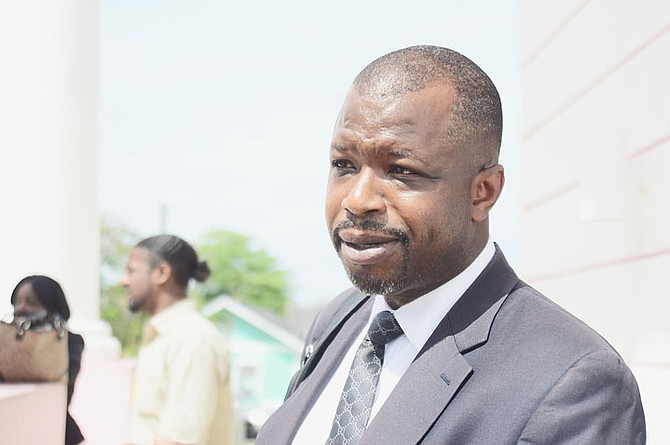COP in consultation with AG over breach of orders convictions
NASSAU, BAHAMAS — Attorney Wayne Munroe, QC, is calling for the prime minister to expunge the records of individuals who breached COVID-19 orders in the same way he has lobbied for the expunging of records with small amounts of marijuana.
Munroe’s comments came amidst increased public scrutiny of the government and police after a police record of someone who violated the curfew order in May was circulated on social media.
Commissioner of Police Paul Rolle told reporters yesterday that he will consult the attorney general and advise on the way forward in dealing with the matter.
“Prior to the change in the emergency orders that permits police to issue tickets, those initial ones of the persons who appeared before the court, those would be recorded as convictions,” Rolle said.
“I had a look at that last night and we’ll be seeking guidance on that as to the way forward in terms of how we will deal with those.”
He explained that in the early phase of the pandemic, individuals who were convicted of breaching the orders would see a conviction on the police record.
However, Rolle said officers are now issuing tickets, which offenders can choose to pay or fight the charge in court.
Munroe, who has been vocal against the state of emergency, emergency orders and competent authority’s power, called on the prime minister to address the issue.
He pointed to the prime minister’s public support to expunge the records of individuals who were convicted with small amounts of marijuana.
“Here it is by his edict and a flick of a pen he is creating hundreds and hundreds of Bahamians who the police choose to prosecute. To create them, criminals, that can’t be right,” Munroe charged.
“Now, tons of people have criminal offences… He cried in his cereal about people with criminal records with small quantities of drugs. I wonder if he is going to expunge the records of people with COVID offences.
“Ask him to do that.”
Rolle said the circulation of the stained police record should make it quite clear that “there are breaches to our rights, that it should be taken seriously”.
“You might say it’s a criminal record for a small thing but just imagine the next time you apply for any visa, for any university, for anyone, you have to declare you have a criminal record.”
The commissioner insisted that authorities will have to decide on how they will address the matter, and “the law will take its course with that”.
“We don’t want to see people having convictions, but that is the law,” Rolle said.
“That has to be corrected or adjusted in legislation. That’s not the domain of the commissioner. That has to be addressed elsewhere… We don’t want it to be an impediment to persons.”
He could not indicate how many people were convicted of breaching the orders in the first phase of the pandemic.


















